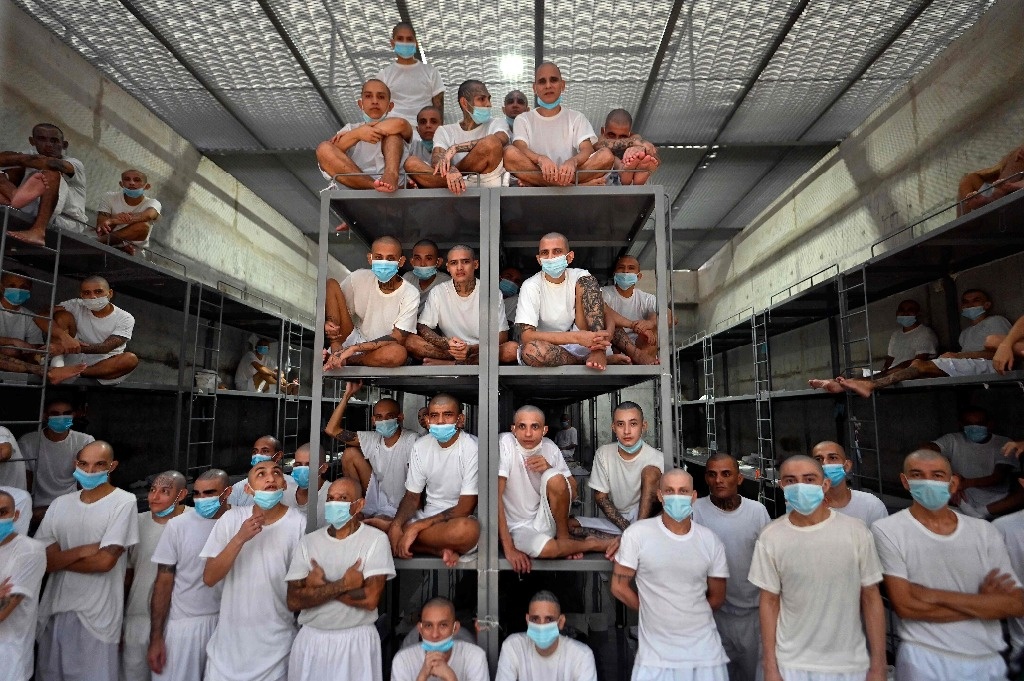San Salvador. The Humanitarian Legal Aid organization stated this Wednesday that 241 people died in prisons in the two years of the emergency regime in the country, after being detained on suspicion of being gang members or collaborating with these criminal groups.
The director of the organization, Ingrid Escobar, confirmed that since 2022 they have received 500 reports of deaths in State custody, but “we have confirmed 241: 239 adults and two children children of prisoners.”
According to the NGO report, “44 percent died from violent death, severe torture, 29 percent from lack of medical care, that is, another way of torturing people.”
The government of Salvadoran President Nayib Bukele got the country’s Congress to approve an emergency regime two years ago, as part of its tough policy against gangs, which suspended fundamental rights such as having access to a lawyer or to know the reasons for the arrest.
In addition, the period of administrative detention – without going to court – extends from 72 hours to 15 days and up to two years to investigate them.
The measure was the government’s response to the rates of violence and murders in the country.
The situation of detainees in El Salvador’s prisons has been repeatedly questioned by human rights organizations due to their violation.
Humanitarian Legal Aid also asked the Salvadoran State to investigate in accordance with the law “all homicides that have occurred in prisons, as well as all forced disappearances of detainees.”
For its part, the Cristosal organization registers more than 3,500 complaints of human rights violations during the emergency regime.
Amnesty International also maintains that there have been forced disappearances, torture and arbitrary deaths in state custody, as well as cruel and inhuman treatment, prison overcrowding and criminalization of people living in poverty.
When presenting the report, Director Escobar declared that “the State of El Salvador must be clear that it has been a violator of international treaties and that it has committed crimes against humanity.”
However, the Minister of Justice and Public Security, Gustavo Villatoro, indicated that since the state of emergency came into force on March 27, 2022, 79,184 people were detained, classified as “suspected terrorists.” With these figures, the minister said that they captured 75 percent of the country’s gang members and that the majority of the missing 25 percent are already outside the national territory.
The same government had to release more than 7 thousand people due to lack of evidence in the last two years. About 90 percent of inmates are in jail without a sentence.
In that sense, the NGO Humanitarian Legal Aid estimated that 35 percent are innocent and that 94 percent of those who died had no affiliation with gangs.
“The majority were working people such as informal merchants, taxi drivers and/or informal transporters, farmers, fishermen, pastors and evangelical preachers, municipal employees and a union member,” the report states.
However, Minister Villatoro reiterated in an interview with local television the need to continue with the security policy against gangs, which the authorities hold responsible for the majority of crimes committed in the country.
According to the government, violence in El Salvador has decreased considerably since 2015, when more than 6,665 homicides were recorded and the country was considered one of the most dangerous in the world. In 2023, the year closed with 214 murders, including 38 homicides of alleged gang members, who died in alleged confrontations with police and armed forces.
In 2024, 31 homicides will be recorded, 34 percent less than the 47 registered in the same period last year. In the first two days of April, a homicide was confirmed.
With the emergency regime, Congress also reformed the Penal Code to increase prison sentences for gang members and their collaborators. In addition, prosecutors can present mass trials for cliques—or gang groups—without the need to individualize the defendants.
#dead #prisons #Salvador #emergency #regime
– 2024-04-05 06:57:46
